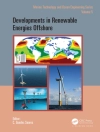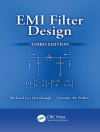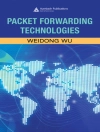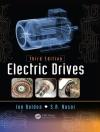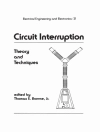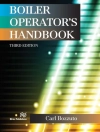This book comprises select proceedings of the 3rd International Conference on Recent Advances in Bio-energy Research (ICRABR 2022), providing comprehensive coverage on bio-energy-related fields and prospects of bio-energy in terms of waste management for energy generation, storage, and application. The content includes themes such as optimisation of energy systems, recent advances in biofuels and bioenergy, biomass hybrid systems, energy efficiency, electrochemical conversion of biofuels to renewable energy, energy management and policy, and the inter-linkages between energy and sustainable development. This book is of use to academics, researchers, consultants, and policymakers alike.
Tabella dei contenuti
Part 1: Biochemical Conversion.- Chapter 1. Analysis of Methane Emission Reduction of Biogas Plant at Bhopal.- Chapter 2. Review of Anaerobic Digestion of Landfill Leachate and Its Co-Digestion Potential.- Chapter 3. Nanobiotechnological routes in lignocellulosic waste pretreatment for bio-renewables production.- Chapter 4. Comparative study of enriched biogas bottling cylinder in the presence of distinct filler at low pressure.- Chapter 5. Design and Techno-economical Analysis of a Biogas Plant as an Alternative Heat Source in Food Processing Industry.- Part 2: Chemical Conversion.- Chapter 6. Synthesis of biolubricant by transesterification of soybean oil using Ni-Al Hydrotalcite as a catalyst.- Chapter 7. Pretreatment of rice husk with acid and alkali for enhancement of sugar recovery and techno-economic analysis of the process.- Chapter 8. Investigation of Tribological Behavior of a Mono Cylinder Diesel Engine Operated with Water-added Palm Biodiesel-Diesel Fuel Blend.- Chapter 9.Catalytic pyrolysis of mixed plastic waste using synthesized compo-site catalyst.- Chapter 10. Utilization of Karanja Seed Shells as a sustainable heterogeneous catalyst for biodiesel production.- Chapter 11. Combined Effect of Preheating and Addition of Ce O2 Nanoparti-cles in Biodiesel Blend (B20) on Combustion, Emission, and Per-formance of a 10-k W Diesel Engine.- Chapter 12. Techno–economic analysis of protease enzyme production and its biofuel application.- Part 3: Thermo Chemical Conversion.- Chapter 13. Biomass Briquetting for Gasification: Waste to Wealth.- Chapter 14. Status and future thrusts of sugarcane processing waste to energy conversion in sugar mills of India: comprehensive review.- Chapter 15. Assessment of thermal behavior and pyrolytic kinetics of selected agro-residues through thermogravimetric analysis. etc.
Circa l’autore
Dr. Nikhil Gakkhar is Scientist C in the Ministry of New and Renewable Energy, Government of India and is handling Solar Water Pumping program throughout India. Prior to that, he worked at Sardar Swaran Singh National Institute of Bio-Energy, Kapurthala India and acted as Visiting Faculty for the Masters in Technology program in Renewable Energy at the Dr. BR Ambedkar National Institute of Technology, Jalandhar, India. He was the Project Coordinator for the South Asia Group on Energy (SAGE) US-India energy cooperation and worked closely with Lawrence Berkeley National Laboratory and the Pacific Northwest National Laboratory, USA. He has a keen research interest and expertise in renewable energy like solar thermal, concentrators, hybrid systems, biomass thermochemical conversion, etc. Presently, he has more than 30 international research articles published in SCI journals of high repute, including conferences and book chapters. He has also filed an Indian patent on the innovative solar-concentrating cooling system.
Dr. Sachin Kumar is a Deputy Director in the Biochemical Conversion Division at the Sardar Swaran Singh National Institute of Bio-Energy, Kapurthala, India. He was a Professor in the Department of Chemical and Biological Engineering at the South Dakota School of Mines and Technology, Rapid City, USA, for a year. He obtained his Ph.D. degree in Chemical Engineering from the Indian Institute of Technology (IIT) Roorkee, India, and has research experience in the biochemical conversion of biomass to biofuels, including bioethanol, biogas, biohydrogen, lignin valorization, etc. He has completed eight research projects and one consulting project. Dr. Kumar has published more than 75 papers in peer-reviewed journals, book chapters, papers in conference proceedings, and seven edited books. He has one granted US patent and five filed Indian patents. He has delivered more than 35 invited or plenary lectures and presented more than 75 papers at national and international conferences.
Dr. Anil Kumar Sarma is an MSc Chemistry (1997), M Tech in Energy Technology (2002) and Ph D in Energy (2006) with specialization in Bioenergy. He also worked as research associate at IIT Guwahati (2007-08) and visiting researcher at Seikei University, Japan (2008-09). He is currently working as Scientist- E at Sardar Swaran Singh National Institute of Bio-Energy, Kapurthala, India and has published more than 65 articles in Catalysis, Biofuel, Enzyme and applications; biomass derived catalyst, applications for biofuel synthesis and biomass for activated carbon production for different utilities. He has edited 4 books and 10 book chapters. He has guided over 20 Master’s thesis, 6 Ph D thesis, and 8 postdoctoral fellows. He has completed several R &D projects on biofuel and catalysis and is currently working on research projects on biomass characterization for power plant applications as a substitute of coal. He is a recipient of outstanding research achievement awards (OIRA 2022) from Oxford Research Awards in the field of Biofuel, Catalysis, and Applications of Biofuels in IC Engine. He is also a visiting faculty at the Centre for Energy and Environment, Dr B R Ambedkar National Institute of Technology, Jalandhar.
Dr. Neal Graham is an Earth Scientist at the Joint Global Change Research Institute at the Pacific Northwest National Laboratory. His research focuses on the interactions between human and water systems through the lens of multisector dynamics and integrated assessment. Additionally, he explores the near- and long-term implications of energy futures across the world and their associated drivers of change. His research interests include integrated assessment modelling, virtual water trade, near-term climate implications, and human-water interactions. Dr. Graham holds a B.S. in Meteorology from Rutgers University and an M.S. and Ph.D. in Atmospheric and Oceanic Sciences from the University of Maryland, USA.


